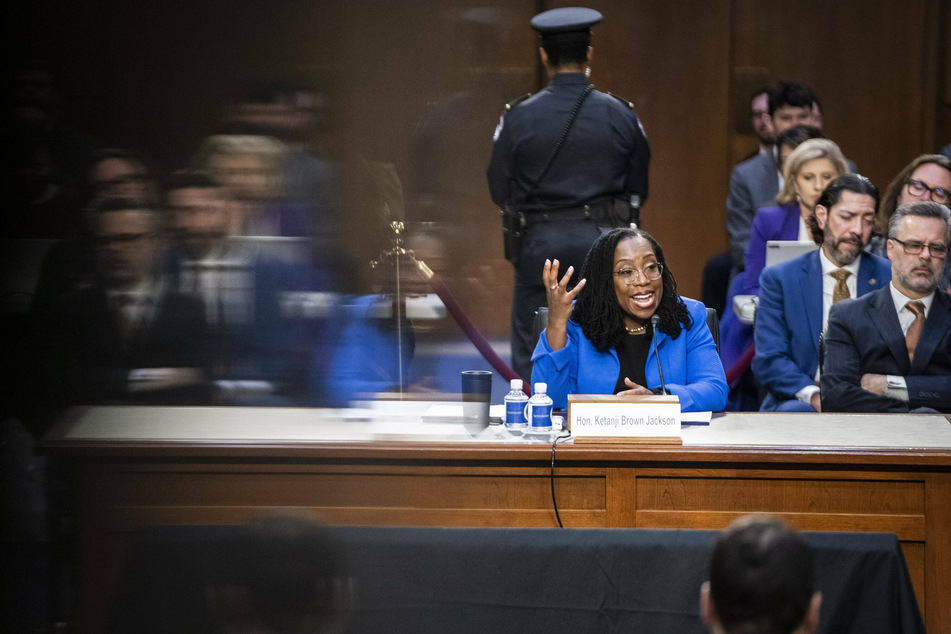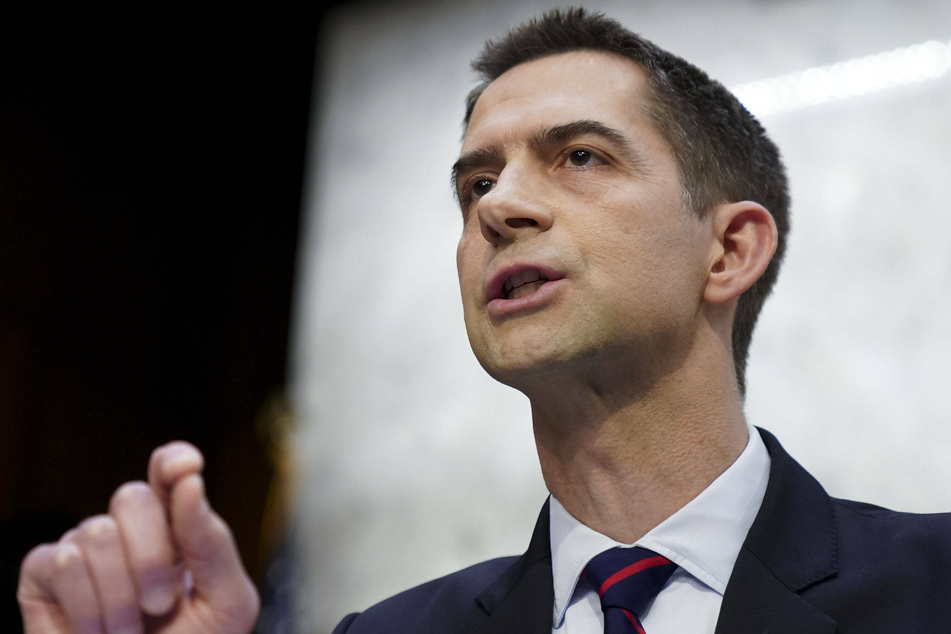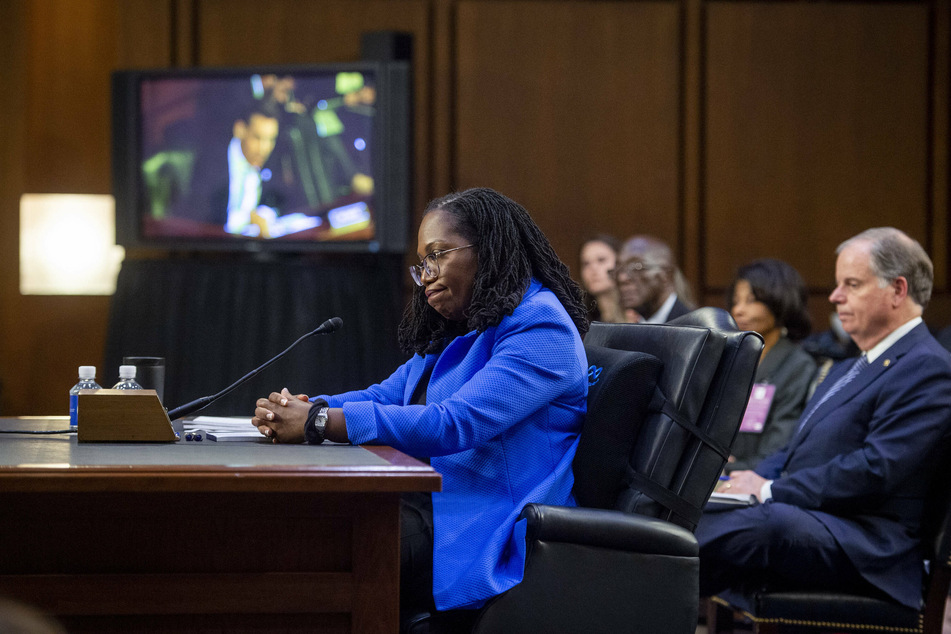Kentanji Brown Jackson wraps up Senate testimony after fending off Republican attacks
Washington DC - Supreme Court nominee Ketanji Brown Jackson wrapped up her Senate testimony Wednesday, portraying herself as a well-grounded, mainstream judge who will be guided by the law and precedent, not ideology.

Despite several tense exchanges with Republican senators who questioned some sentences she handed down while serving as a federal judge, Jackson, the first Black woman nominated to the high court, emerged from the Senate Judiciary Committee hearing with no surprises or missteps that might endanger her path to confirmation.
Jackson told senators she has no "overarching theory" or philosophy akin to the originalism espoused by conservative justices. She said she would instead follow the model of retiring Justice Stephen G. Breyer, her former boss, whose seat she is expected to fill.
Her words suggested she would be a moderate liberal on the high court, more like Breyer than Justice Sonia Sotomayor, and more inclined to work with her colleagues than to denounce them in fierce dissents.
"I look at the facts, the text of the law and principles" set by court precedents, she said of her approach. "I look at cases impartially, and I understand my limited role."
She repeatedly said she would "stay in [her] lane" as a judge, not make policy that is better left to politicians.
Republicans latch onto questions over sentencing

Jackson’s testimony was overshadowed at times by Republicans.
Senators Josh Hawley of Missouri, Ted Cruz of Texas and Tom Cotton of Arkansas asserted Jackson was unduly sympathetic to defendants who were convicted of possessing child pornography. As evidence, they cited several cases in which she handed down shorter prison terms than prosecutors had recommended.
On Monday, Iowa’s Senator Chuck Grassley and other senior Republicans opened the Judiciary Committee hearing by pledging the public would not witness a "spectacle" like the 2018 confirmation hearing for then-nominee Brett Kavanaugh.
But those who tuned in to the hearings heard Cruz, Hawley, Cotton, and Senator Lindsey Graham repeatedly describe in detail the pornography that they – and the judge – called shocking and vile.
Jackson calmly explained the process she followed in deciding the punishment for a defendant who possessed pornography, but who had not personally abused children. But after repeating her explanation more than half a dozen times, she refused to say more.
At one point Wednesday, Cotton asked whether she regretted a particular sentence in one such case.
"What I regret is that in a hearing about my qualifications to be a justice on the Supreme Court, we have spent a lot of time focusing on this small subset of my sentences," she said.
The committee has been strictly divided along partisan lines in recent years. None of its Democrats supported former President Donald Trump’s three nominees, and it appears none of its Republicans are likely to vote for Jackson.
But a Gallup poll taken in early March indicated that she had the support of 58% of Americans, the highest approval of any Supreme Court nominee since 2005, when John Roberts Jr., the current chief justice, had 59% approval.
Trump’s successful nominees had less public support, Gallup said. Polls indicated Justice Amy Coney Barrett was supported by 51% at the time of her nomination in October 2020, Justice Neil Gorsuch had the support of 45% in 2017, and Justice Brett Kavanaugh was supported by 41% in 2018.
The latest poll also found the public sharply divided along partisan lines. While 88% of Democrats said they approved of President Joe Biden’s choice for the high court and said she should be confirmed, only 31% of Republicans agreed.
Fair, neutral, and pragmatic

"There was a time a nominee like Jackson would have been confirmed overwhelmingly," said Sheryll Cashin, a professor at Georgetown Law. "She strikes me as very moderate, if not conservative, in her attempt to hold on to traditions that uphold the legitimacy of the project of judging."
Cashin noted that Breyer says he believes in a "living constitution" – in which its meaning can evolve over time – but Jackson refused to adopt that characterization.
On the current court, Justices Clarence Thomas, Samuel Alito, and Gorsuch, the three most conservative members, often say that rely on the original meaning of a constitutional provision when deciding cases. Other members of the court – liberals and conservatives – say they begin with the words of the Constitution, but those alone do not decide a case.
Jackson described her approach when discussing the issue of searches and seizures in the era of smartphones. The 4th Amendment forbids "unreasonable searches" by the government, and it generally requires police to have a search warrant before they enter a home or look through someone’s papers and files.
Jackson cited the 2014 case of Riley vs. California, where the court decided officers need a warrant to download the contents of a smartphone. She said that even though the Framers of the Constitution did not imagine smartphones, the justices reasoned that people have vast amounts of personal information on their phones that they used to keep at home. Therefore, it should remain private unless officers can show evidence of a crime in progress, she said.
When pressed, Jackson said she did not want to attach a label to her approach, other than that she would be fair, neutral, and pragmatic.
Jackson (51) has worked as a federal district judge for most of the last decade. Before that she was a federal public defender; she would be the first Supreme Court justice with such experience.
A graduate of Harvard Law School, Jackson told the committee she intended to recuse herself from an affirmative action case against Harvard University if she’s confirmed to the Supreme Court.
The committee will convene again Thursday to hear from outside witnesses who support or oppose the nominee.
Cover photo: IMAGO / UPI Photo

